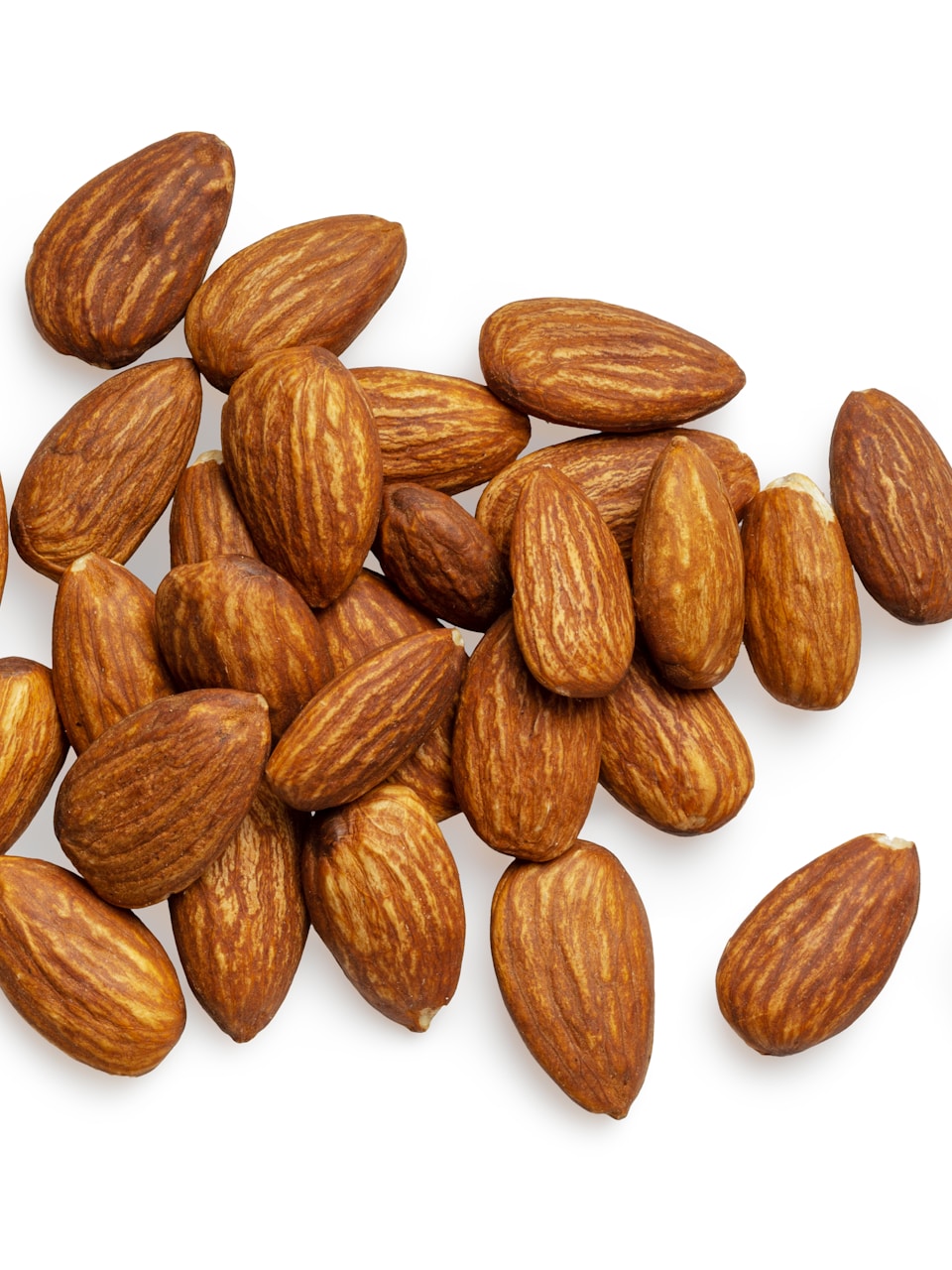For years, almonds have been caught in the crossfire of weight loss debates. On one hand, they’re often praised for their rich nutrient profile, including protein, fiber, and healthy fats. On the other, they are frequently shunned by those trying to lose weight, due to their high-calorie and fat content. The fear? That these delicious nuts might derail weight loss efforts, causing unwanted weight gain.
But what if almonds could actually be part of the solution? New research from the University of South Australia is flipping the script on this long-standing belief. A large-scale study has uncovered compelling evidence suggesting that almonds—when consumed as part of a calorie-controlled diet—might not only help people shed pounds but could also provide significant long-term health benefits, including improved heart health and better metabolic function.
So, what does science say about almonds and weight loss? Can a handful of nuts really support your journey to a slimmer, healthier you? Let’s dive into this groundbreaking research and uncover the surprising benefits almonds have to offer in the realm of weight management and cardiometabolic health.

Can Almonds Help You Lose Weight?
We’ve all heard that almonds are high in fat and calories, which has made many people avoid them while trying to lose weight. However, the latest research from the University of South Australia suggests that almonds can actually promote weight loss and improve cardiometabolic health when included as part of an energy-restricted diet.
In the largest study of its kind, researchers discovered that participants who added almonds to their diet lost significant weight while also seeing improvements in their cardiovascular health, particularly cholesterol levels. This study could change the way we think about incorporating nuts into a weight-loss plan.
The Study: Almonds vs. Carbohydrate-Rich Snacks
Researchers compared the effects of an almond-supplemented diet with a diet that included carbohydrate-rich snacks on weight loss and cardiometabolic health. The study participants followed an energy-restricted diet, where they consumed fewer calories than they burned, for a period of nine months.
The results were impressive:
-
Both the almond and nut-free diets led to a 9.3% reduction in body weight over the trial period.
-
However, the almond-supplemented diet showed statistically significant improvements in several lipoprotein subfractions that are linked to better heart health and reduced inflammation.
In simple terms, almonds didn’t just help participants lose weight; they also improved key factors related to heart health.

The Science Behind Almonds and Weight Loss
Dr. Sharayah Carter, the lead researcher, explains that almonds are a nutritious snack packed with protein, fiber, and essential vitamins and minerals, which can help people feel fuller for longer—an important factor when trying to reduce calorie intake.
But what makes almonds particularly beneficial for weight loss is their healthy fat content. Unlike the saturated fats found in processed foods, almonds contain unsaturated fats—the type of fat that is known to improve cholesterol levels and reduce inflammation. These healthy fats, combined with fiber, make almonds an excellent addition to a weight-loss diet because they help keep you satisfied and prevent overeating.
The Study’s Key Takeaways
-
Both almond and nut-free diets led to significant weight loss (approximately 9.3% of body weight).
-
Almonds improved cardiometabolic health more than carbohydrate-based snacks, suggesting long-term benefits for heart health.
-
Almonds help with appetite control, making it easier to stick to a weight-loss plan.
The study involved 106 participants, each following a three-month energy-restricted diet for weight loss, followed by a six-month weight maintenance phase. During this time, participants consumed unsalted whole almonds (15% of their energy intake) as part of the almond diet, or carbohydrate-rich snacks like rice crackers or cereal bars in the nut-free diet.
Why This Matters for Your Weight Loss Journey
For those who find it difficult to stick to a calorie-restricted diet, adding almonds can make a significant difference. Since almonds are high in fiber and protein, they promote fullness, making it easier to reduce calorie intake without feeling deprived. This feeling of fullness could make your weight loss journey more sustainable, particularly if you’re prone to snacking between meals.
In addition to helping with weight loss, almonds provide long-term cardiovascular benefits by improving key factors like cholesterol levels and reducing inflammation. This makes almonds a double-duty food—not only supporting weight management but also improving overall heart health.

Real-Life Benefits: Why You Should Consider Almonds for Weight Loss
Including almonds in your diet may seem counterintuitive given their fat content, but unsaturated fats are crucial for maintaining heart health and supporting weight loss. Almonds, unlike processed snacks that are often packed with empty calories, offer nutrient-dense benefits without spiking blood sugar.
In a real-life scenario, imagine swapping out your usual snack of chips or cookies with a handful of almonds. Not only will you feel fuller for longer, but you’ll also be giving your body a healthy, nutrient-rich snack that supports both weight loss and heart health.
The Bottom Line: Can Almonds Really Help You Lose Weight?
The latest research from the University of South Australia shows that almonds are not only safe but beneficial for those trying to lose weight. By including almonds as part of a balanced, calorie-controlled diet, you can achieve weight loss and also improve your cardiometabolic health. While almonds alone won’t work as a magic weight loss solution, they can make your weight loss efforts easier and more sustainable.
Key Takeaways:
-
Almonds support weight loss by helping you feel full longer, reducing overall calorie intake.
-
They offer heart health benefits, improving cholesterol levels and reducing inflammation.
-
Almonds are packed with protein, fiber, and healthy fats, making them a nutritious, satisfying snack.
For anyone looking to lose weight while maintaining a healthy heart, almonds might just be the perfect snack to include in your daily routine.